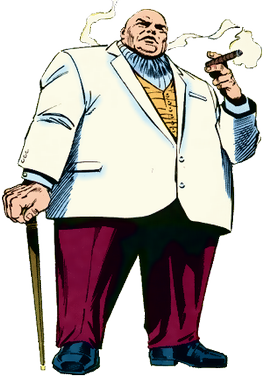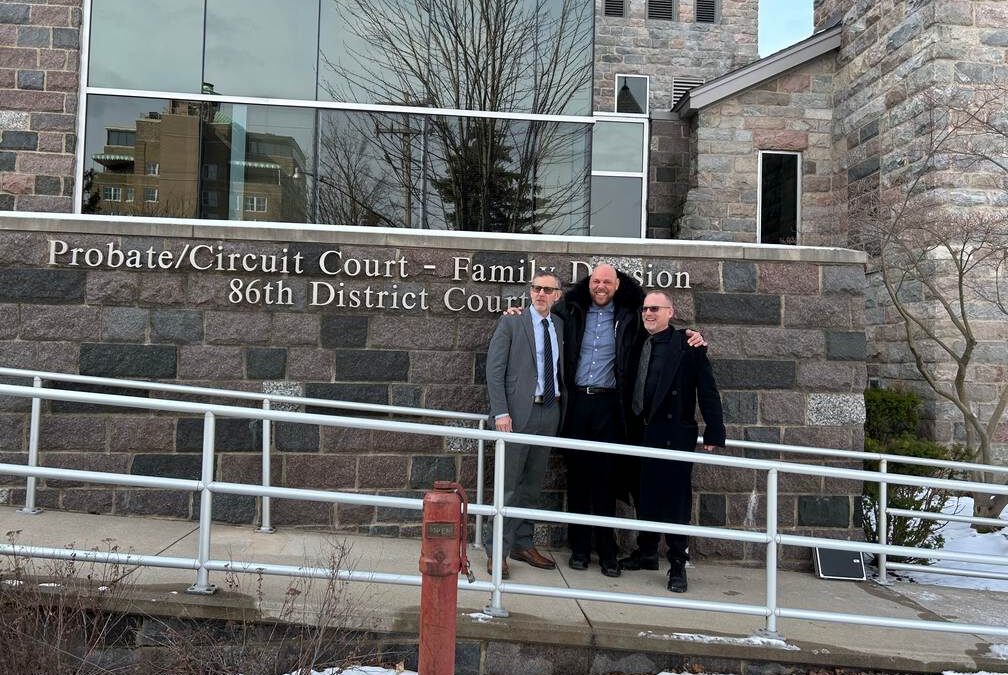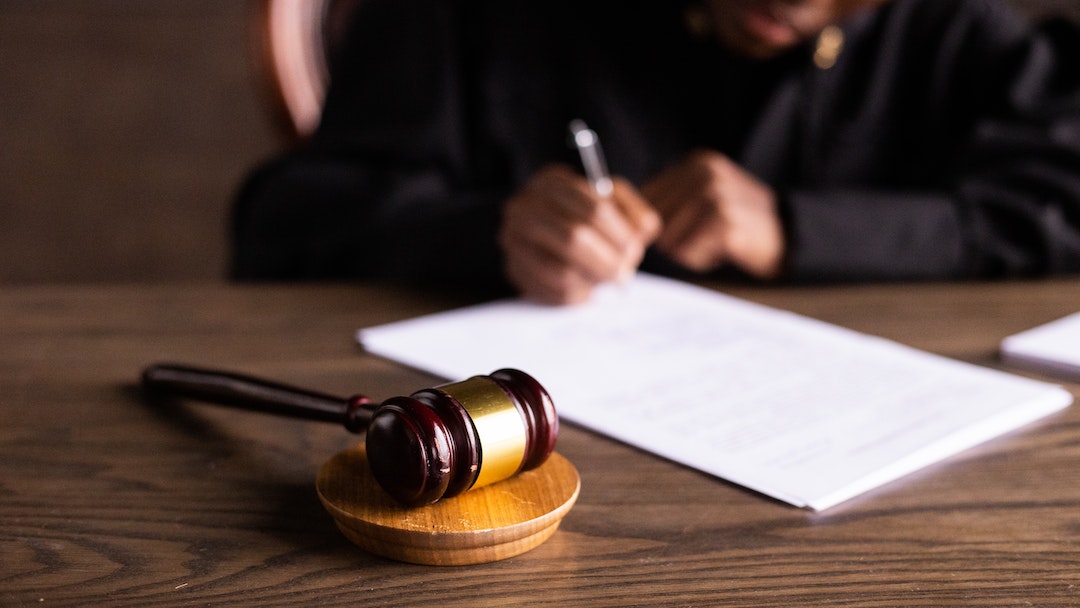Michigan Habitual Offenders
Criminal Proceedings Benchbook, Vol. 2 (michigan.gov)
4.4 Maximum Sentences for Habitual Offenders
“‘A trial court, when sentencing a defendant as an habitual offender, must exercise its discretion in setting the maximum sentence, that is, it is not required by law to increase the maximum sentence.’” People v Bonilla-Machado, 489 Mich 412, 429-430 (2011), quoting People v Turski, 436 Mich 878, 878 (1990) (remand was appropriate where the trial court “erroneously asserted that it was bound by law to enhance the maximum sentences”).
A.Second Habitual Offender Status (HO2)
This discussion presumes the prosecutor is seeking an enhanced sentence under MCL 769.13. See Section 4.2 for more information on the prosecutor’s right to seek an enhanced sentence.
A person is a second habitual offender if he or she is convicted of a felony or attempted felony and has been previously convicted of a felony or attempted felony in Michigan or in another state if the violation would have been a felony violation in Michigan. See MCL 769.10(1). A second habitual offender is subject to the following penalties, except as otherwise provided in MCL 769.10 and MCL 771.1:
•If the subsequent felony is punishable on first conviction by a term less than life imprisonment, the court “may place the person on probation[1] or sentence the person to imprisonment for a maximum term that is not more than 1-1/2 times the longest term prescribed for a first conviction of that offense or for a lesser term.” MCL 769.10(1)(a).
•If the subsequent felony is punishable on first conviction by life imprisonment, the court “may place the person on probation[2] or sentence the person to imprisonment for life or for a lesser term.” MCL 769.10(1)(b).
•If the subsequent felony is a major controlled substance offense,3 the court must sentence the person as provided by MCL 333.7401 to MCL 333.7461. MCL 769.10(1)(c).
Any term of years sentence must be indeterminate, meaning it must have a minimum and maximum sentence “in terms of years or a fraction of a year[.]” MCL 769.10(2). The maximum sentence must not be “less than the maximum term for a first conviction.” Id.
B.Third Habitual Offender Status (HO3)
This discussion presumes the prosecutor is seeking an enhanced sentence under MCL 769.13. See Section 4.2 for more information on the prosecutor’s right to seek an enhanced sentence.
A person is a third habitual offender if he or she is convicted of a felony or attempted felony and has been previously convicted of any combination of two or more felonies or attempted felonies in Michigan or in another state if the violations would have been felony violations in Michigan. A third habitual offender is subject to the following penalties, except as otherwise provided in MCL 769.11 and MCL 771.1:
•If the subsequent felony is punishable on first conviction by a term less than life imprisonment, the court “may sentence the person to imprisonment for a maximum term that is not more than twice the longest term prescribed by law for a first conviction of that offense or for a lesser term.” MCL 769.11(1)(a).
•If the subsequent felony is punishable on first conviction by life imprisonment, the court “may sentence the person to imprisonment for life or for a lesser term.” MCL 769.11(1)(b).
•If the subsequent felony is a major controlled substance offense,4 the court must sentence the person as provided by MCL 333.7401 to MCL 333.7461. MCL 769.11(1)(c).
Any term of years sentence must be indeterminate, meaning it must have a minimum and maximum sentence “in terms of years or a fraction of a year[.]” MCL 769.11(2). The maximum sentence must not be “less than the maximum term for a first conviction.” Id.
C.Fourth Habitual Offender Status (HO4)
This discussion presumes the prosecutor is seeking an enhanced sentence under MCL 769.13. See Section 4.2 for more information on the prosecutor’s right to seek an enhanced sentence.
A person is a fourth habitual offender if he or she is convicted of a felony or attempted felony and has been previously convicted of any combination of three or more felonies or attempted felonies in Michigan or in another state if the violations would have been felony violations in Michigan. A fourth habitual offender is subject to the following penalties:
•“If the subsequent felony is punishable upon a first conviction by imprisonment for a maximum term of 5 years or more or for life, the court, except as otherwise provided in this section or [MCL 771.1], may sentence the person to imprisonment for life or for a lesser term.” MCL 769.12(1)(b).
•“If the subsequent felony is punishable upon a first conviction by imprisonment for a maximum term that is less than 5 years, the court, except as otherwise provided in this section or [MCL 771.1], may sentence the person to imprisonment for a maximum term of not more than 15 years.” MCL 769.12(1)(c).
•If the subsequent felony is a major controlled substance offense,5 the court must sentence the person as provided by MCL 333.7401 to MCL 333.7461. MCL 769.12(1)(d).
In addition to the general maximum sentence enhancement provisions set out in MCL 769.12 for fourth habitual offenders, MCL 769.12(1)(a) provides for a mandatory minimum sentence of 25 years’ imprisonment for certain violent offenders. The sentencing court must impose a sentence of imprisonment for not less than 25 years if:
•the offender has been convicted of three or more prior felonies or felony attempts, including at least one listed prior felony,6 and
•the subsequent felony that the offender is convicted of committing or conspiring to commit is a serious crime. MCL 769.12(1)(a).
For purposes of MCL 769.12(1)(a) only, “[n]ot more than [one] conviction arising out of the same transaction shall be considered a prior felony conviction[.]” MCL 769.12(1)(a).
The 25-year mandatory minimum sentence imposed by MCL 769.12(1)(a) does not constitute cruel or unusual punishment under the Michigan Constitution, Const 1963, art 1, § 16.7 People v Burkett, 337 Mich App 631, 635-642 (2021) (rejecting what it characterized as a facial challenge to MCL 769.12(1)(a)). “Under the Michigan Constitution, the prohibition against cruel or unusual punishment includes a prohibition on grossly disproportionate sentences.” Burkett, 337 Mich App at 636 (cleaned up). “Legislatively mandated sentences are presumptively proportional and presumptively valid,” and “to overcome the presumption that the sentence is proportionate, a defendant must present unusual circumstances that would render the presumptively proportionate sentence disproportionate.” Id. at 637 (quotation marks and citations omitted). A three-part test is used to determine whether a punishment is cruel or unusual: “(1) the severity of the sentence imposed and the gravity of the offense, (2) a comparison of the penalty to penalties for other crimes under Michigan law, and (3) a comparison between Michigan’s penalty and penalties imposed for the same offense in other states.” Id. at 636-637 (quotation marks and citation omitted). “Consideration of the three-part test leads to the conclusion that the minimum sentence mandated by MCL 769.12(1)(a) is neither cruel nor unusual” because the statute “only applies to individuals convicted of a serious felony who have previously been convicted of three or more felonies, at least one of which is a listed prior felony,” and it “reflects a rational legislative judgment, entitled to deference, that offenders who have committed serious or violent felonies and who continue to commit felonies must be incapacitated.” Burkett, 337 Mich App at 642 (quotation marks and citation omitted).
Any term of years sentence must be indeterminate, meaning it must have a minimum and maximum sentence “in terms of years or a fraction of a year[.]” MCL 769.12(2). The maximum sentence must not be “less than the maximum term for a first conviction.” Id.
1 See Section 9.2 for more information about probation.
2 See Section 9.2 for more information about probation.
3 Sentences for subsequent major controlled substance offenses are discussed in Section 4.5.
4 Sentences for subsequent major controlled substance offenses are discussed in Section 4.5.
5 Sentences for subsequent major controlled substance offenses are discussed in Section 4.5.
6 Only convictions under the specific Michigan statutes listed in MCL 769.12(6)(a) constitute listed prior felonies for purposes of MCL 769.12(1)(a); a conviction in another jurisdiction for an offense comparable to a listed offense does not constitute a listed prior felony for purposes of the mandatory 25-year minimum sentence under MCL 769.12(1)(a). People v Pointer-Bey, 321 Mich App 609, 622-623 (2017) (noting that, unlike the general rule of MCL 769.12(1) that comparable out-of-state convictions are considered when determining fourth-habitual offender status, “MCL 769.12(6)(a) contains no indication that convictions under comparable statutes from other jurisdictions should be considered ‘listed prior felonies’ for purposes of MCL 769.12(1)(a),” and holding that the defendant’s conviction under a federal statute comparable to a Michigan statute listed in MCL 769.12(6)(a) could not be considered for purposes of MCL 769.12(1)(a)).
7 “If a punishment passes muster under the state constitution, then it necessarily passes muster under the federal constitution.” People v Burkett, 337 Mich App 631, 636 (2021) (quotation marks and citation omitted).

















